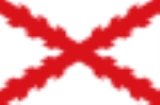
Battle of Angol
Encyclopedia
Battle of Angol was a battle fought between the Mapuche and the Spanish conquerors in March 1564.
captain Lorenzo Bernal del Mercado
had discovered that the rebels had constructed a pucará
close by, establishing a blockade of the city. Lorenzo Bernal ordered a reconnaissance patrol and he observed that the natives under the toqui
Illangulién
had chosen an impregnable position in a marsh and chose to retire. Illangulién's troops then moved to a second position, nearer to Angol, to which captain Lorenzo Bernal responded with a new reconnaissance.
Finding that this new position also was impregnable he again retired. Feeling victorious and believing the destruction of Angol was imminent, a Mapuche detachment located themselves in a third position awaiting reinforcements from their main body at the old position. This time, seeing their dangerous proximity to Los Infantes, captain Bernal chose to attack the position before more Mapuches arrived. In the battle the Spanish drove the Mapuche out of their pucara and pursued them down to the river bank and drove them into the river, where they were trapped and 1,000 Mapuches were killed including the toqui Illanguelén and many more were wounded or captured. Bernal ordered some of the captives killed and others lost hands or feet. When the news reached the rest of the Mapuche army coming to attack Angol they dispersed.
History
In Los InfantesAngol
Angol is a commune and capital city of the Malleco Province in the Araucanía Region of southern Chile. It is located at the foot of the Nahuelbuta Range and next to the Vergara River, that permitted communications by small boats to the Bío-Bío River and Concepción. This strategic position explains...
captain Lorenzo Bernal del Mercado
Lorenzo Bernal del Mercado
Lorenzo Bernal del Mercado was a Spanish captain who was one of the more successful soldiers in the Arauco War in Chile rising to the rank of Maestre de Campo and temporary Capitán General of the Captaincy General of Chile....
had discovered that the rebels had constructed a pucará
Pucará
A pucará is a term that refers to the ruins of the fortifications made by the natives of the central Andean cultures and particularly to those of the Inca...
close by, establishing a blockade of the city. Lorenzo Bernal ordered a reconnaissance patrol and he observed that the natives under the toqui
Toqui
Toqui is a title conferred by the Mapuche to those who are chosen as their leaders during times of war. The toqui is chosen in an assembly or parliament of the chieftains of the various clans or confederation of clans , allied during the war in question...
Illangulién
Illangulién
Illangulién, Quiromanite, , Queupulien or Antiguenu, was the Mapuche toqui elected to replace Lemucaguin or Caupolicán the younger in 1559 following the Battle of Quiapo to his death in battle in the Battle of Angol in 1564....
had chosen an impregnable position in a marsh and chose to retire. Illangulién's troops then moved to a second position, nearer to Angol, to which captain Lorenzo Bernal responded with a new reconnaissance.
Finding that this new position also was impregnable he again retired. Feeling victorious and believing the destruction of Angol was imminent, a Mapuche detachment located themselves in a third position awaiting reinforcements from their main body at the old position. This time, seeing their dangerous proximity to Los Infantes, captain Bernal chose to attack the position before more Mapuches arrived. In the battle the Spanish drove the Mapuche out of their pucara and pursued them down to the river bank and drove them into the river, where they were trapped and 1,000 Mapuches were killed including the toqui Illanguelén and many more were wounded or captured. Bernal ordered some of the captives killed and others lost hands or feet. When the news reached the rest of the Mapuche army coming to attack Angol they dispersed.
Source
- Alonso de Góngora MarmolejoAlonso de Góngora MarmolejoAlonso de Góngora Marmolejo was a Spanish conquistador and chronicler of the early conquest and settlement of the Kingdom of Chile, and the start of the Arauco War.-Biography:...
, Historia de Todas las Cosas que han Acaecido en el Reino de Chile y de los que lo han gobernado (1536-1575) (History of All the Things that Have happened in the Kingdom of Chile and of they that have governed it (1536-1575)), Edición digital a partir de Crónicas del Reino de Chile, Madrid, Atlas, 1960, pp. 75-224, (on line in Spanish) - Pedro Mariño de LoberaPedro Mariño de LoberaPedro Mariño de Lobera was a Spanish conquistador and chronicler of the Arauco War in the Kingdom of Chile.-Biography:A professional soldier who served in the war between Spain and France, he went to the Americas in 1545. Mariño joined the forces of Pedro de La Gasca in Havana, Cuba, when he...
, Crónica del Reino de Chile , escrita por el capitán Pedro Mariño de Lobera....reducido a nuevo método y estilo por el Padre Bartolomé de Escobar. Edición digital a partir de Crónicas del Reino de Chile Madrid, Atlas, 1960, pp. 227-562, (Biblioteca de Autores Españoles ; 569-575). Biblioteca Virtual Miguel de Cervantes (on line in Spanish)

